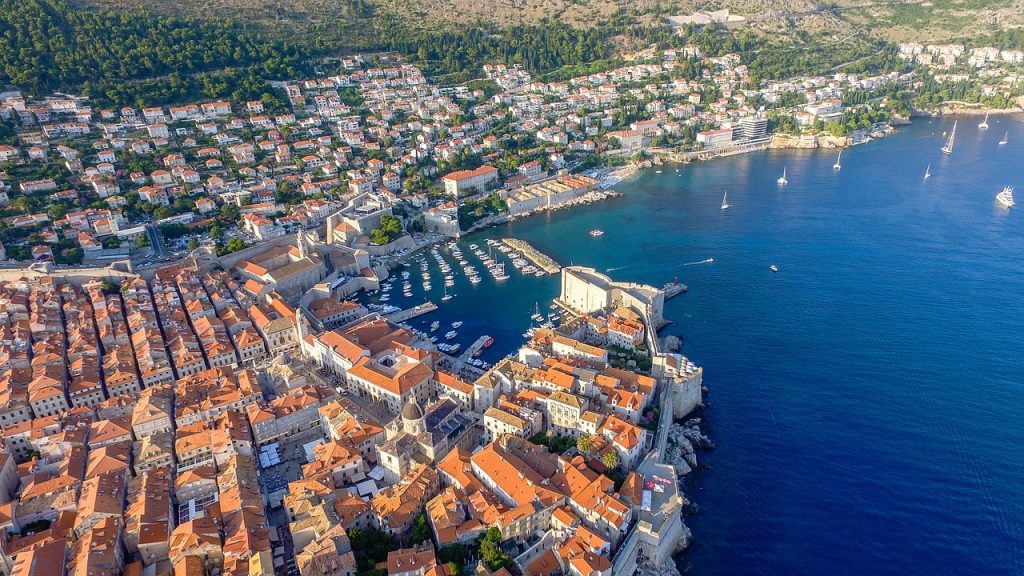Slobodna Dalmacija reports that at the Dubrovnik City Council session scheduled for Tuesday, the amount of tourist tax for cruise ships in international maritime traffic in 2022 will be discussed.
Recall, Article 11 of the Tourist Tax Act stipulates that a ship on a cruise in international maritime traffic and international traffic on inland waters, when it is at berth in the port or anchored at the port, may pay the tourist tax, provided that the municipal or city council decides whether or not to charge and in what amount.
The proposal to the City Council from the City Administrative Department for Tourism, Economy and the Sea is that from January 1, 2022, ships with a capacity of 50 to 200 passengers will be charged a tourist tax of 2,000 kuna, those with a capacity of 201 to 500 passengers will pay 5,000 kuna, while 10,000 kuna will be charged per ship with a capacity of 501 to 1000 passengers.
For ships with a capacity of 1001 to 2000 passengers, 20,000 kuna will be charged, from 2001 to 3,000 passengers – 30,000 kuna, and for ships with a passenger capacity of more than 3001 – 40,000 kuna.
These amounts are no different from those approved by the City Council at its session on September 23, 2019, when the decision was made to collect this tax in the same amounts for 2021.
Billing began on January 1, and the city of Dubrovnik expects 14 million kuna in tourist tax from cruisers this year, which will be used exclusively to improve the road infrastructure in the area of the city of Dubrovnik, said Mato Franković.
The collection of this tax was made possible by the Ministry of Tourism by amending the Law on Tourist Tax, leaving its collection to local self-government units.
In January last year, the City of Split also decided on tourist tax for cruisers. In the season, cruisers will be charged the maximum amount, with the same schedule as Dubrovnik, while out of season, from November 1 to April 30, the fee will be 50 percent lower.
Approximately twice as many cruisers sail to Dubrovnik annually than to Split, which accepts twice as many cruisers as Zadar. The City of Zadar also charges the maximum tourist tax to cruise ships, except in the port of Gaženica, a large infrastructure project made with state money, where this tax is not charged to increase competitiveness.
The good news is that MSC Cruises announced on Monday that boarding MSC Grandios and MSC Magnifico in the winter season 2020/2021 will be possible for three additional countries: Croatia, Bulgaria, and Romania. Once they initially resumed navigation, boarding was only possible for passengers from 26 Schengen countries.
Following a temporary suspension due to restrictive traffic within Italy during the MSC Grandios holiday season, MSC Cruises’ flagship fleet resumed its 7-night cruises on January 24, departing from Genoa every Sunday and visiting the Italian ports of Civitavecchia, Naples, Palermo, and Valletta in Malta. Boarding is possible in each of these Italian ports. MSC Grandios will sail with the said itinerary until March 21, after which it will stay in the western Mediterranean with a new itinerary as part of its summer program.
MSC Magnifica will continue sailing on February 14, departing from Genoa on 11-night cruises designed to give guests a chance to discover the attractions of the eastern and western Mediterranean, with a tour of Italy, Greece, and Malta.
As the Dubrovnik Port Authority director, Blaz Pezo, said, it has been possible to board and disembark some guests or crew members on MSC ships before.
“So far, they have not embarked or departed from our ports en masse,” said Pezo.
“In exceptional situations, guests were able to board half of the cruise. The port of embarkation is Venice for them. They may no longer have as much demand, so they consider making it easier for people to board in Split or Zadar to reduce the costs for someone traveling from Bosnia or southern Croatia to Venice. Everything has changed now,” said the Port Authority director, who is already rooting for Dubrovnik to become a homeport destination.
To read more about business in Croatia, follow TCN’s dedicated page.








